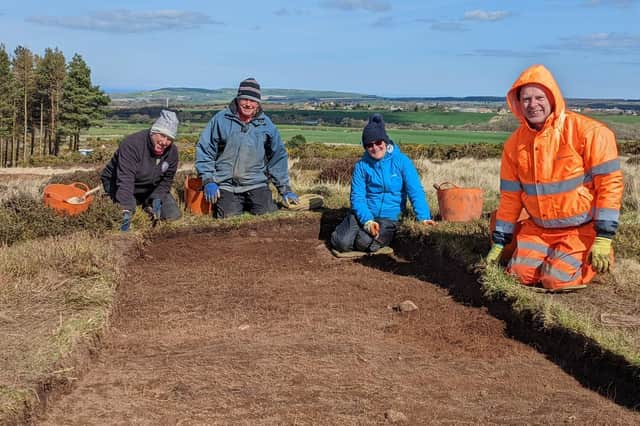North York Moors archeological dig investigating possible prehistoric farming settlement


Investigating the findings of a previous aerial survey, the dig is taking place in the north of the National Park towards Guisborough.
Miles Johnson, head of historic environment at the North York Moors National Park Authority, said it was an exciting project.
Advertisement
Hide AdAdvertisement
Hide Ad“It’s always exciting to have the opportunity to discover something new and help reveal the hidden history of the landscape,” he said.
“It’s been a number of years since we’ve seen an excavation on this kind of site in the North York Moors and few examples of this kind of site have ever been investigated in the region.”
The site first came to the attention of the National Park Authority’s archaeology team following an aerial survey of the surrounding landscape, known as LiDAR mapping, which uses laser technology to scan the ground identifying variations which may otherwise be hidden under vegetation. This was followed by a study on the ground in 2019.
“The information we have so far suggests a farming settlement, surrounded by small fields which were cultivated and probably held livestock too,” said Miles.
Advertisement
Hide AdAdvertisement
Hide Ad“The remains look to be significant, but the investigation will be targeted and small-scale so that the impact on both the archaeology and the surrounding environment is as minimal as possible.
“Ultimately, we hope that this excavation might give us a better insight into domestic life around 2-4,000 years ago in the North York Moors.
“Many of the features that survive or have been excavated from this period are monumental in nature, for example barrows or dykes. But understanding the everyday, ordinary lives of people is important too.”
The excavation is being carried out by DigVentures, a social enterprise company that brings together people who are interested in archaeology, with opportunities to get involved with real excavations.
Advertisement
Hide AdAdvertisement
Hide AdThe current dig will finish by mid-April, but the work to study, identify and properly catalogue the finds and environmental information from the site will continue over the coming months. Initial finds have included a range of flints from the Neolithic and Bronze Age and a small amount of pottery.